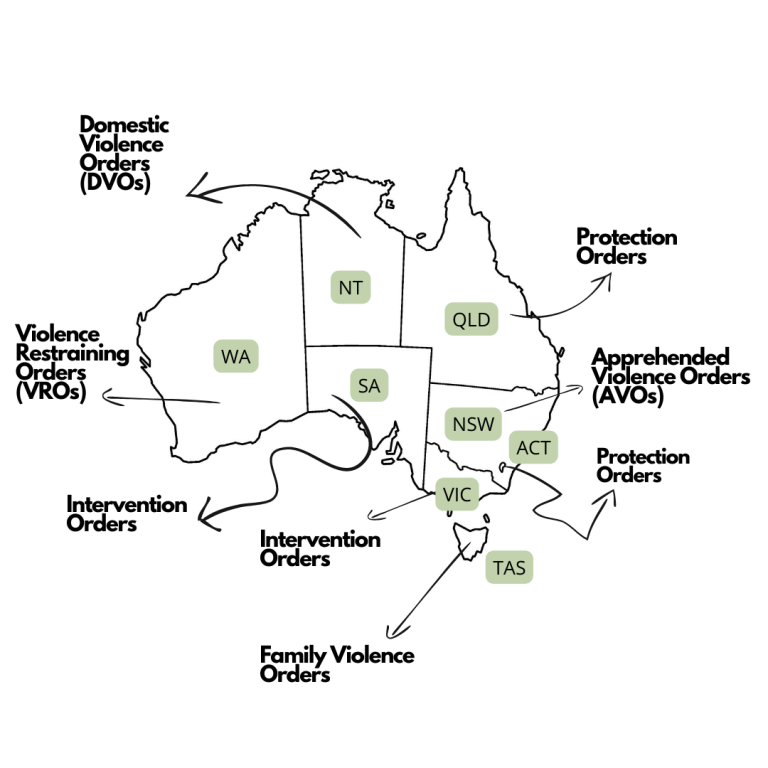Domestic Violence and AVO Lawyers
Domestic Violence and AVO Lawyers
Click below to view our successful cases involving domestic violence and AVO/ADVO cases.
AVO, ADVO, APVO Orders
A court makes an AVO (Apprehended Violence Order) against you if it believes that another person feels threatened and fears for their safety. This is a time that you may need a domestic violence lawyer.
If somebody is seeking an ADVO (Apprehended Domestic Violence Order) or an APVO (Apprehended Personal Violence Order) against you, you should seek legal advice from one of our experienced AVO lawyers in Sydney.
- An Apprehended Domestic Violence Order (ADVO) usually occurs where people involved are related, living together or are in an intimate relationship.
- An Apprehended Personal Violence Order (APVO) occurs where people involved are not related and do not have a domestic relationship. For example, if they are neighbours or co-workers.
If you get an AVO, you can either consent to the order or defend the application in court. It’s essential that you understand the potential consequences of having an AVO in place against you before deciding. Speak to one of our experienced AVO lawyers to get advice on your legal options. In the situation that you choose to defend the application, we can represent you in court in Sydney or anywhere in NSW.
A police officer makes an application for an AVO when they believe a person needs protection from violence or intimidating behaviour. Your partner can ask them to withdraw the application. However, it is ultimately up to the police prosecutor to make the decisions about the AVO. If you are facing such a situation, speak to us as we can help you negotiate with police about withdrawing the application.
No. If an AVO is made against you, it will not go on your criminal record. However, it is a criminal offence to breach an AVO.
Although you will not get a criminal record, it’s important to understand the consequences of having an AVO against you.
- The AVO will list a set of conditions that you must follow, such as: not approaching or contacting the protected person, or not going to a certain premises. You must adhere to these conditions for the period specified in the AVO. A failure to do so will amount to breaching the AVO.
- An AVO is kept on police record and may affect your employment prospects and eligibility for certain licences. These include items such as firearms and security licences.
You should speak to an AVO lawyer as soon as possible. Breaching an AVO is a criminal offence that carries a maximum penalty of two years imprisonment and/or a fine of 50 penalty units. However, a domestic violence lawyer can ensure that you retain as much of your freedom as possible.
If police arrest or detain you in relation to AVO conditions which have previously been varied, dispensed with or where such conditions no longer exist, the police may be acting outside of their lawful powers. You might be able to make a civil claim against the police for unlawful arrest. We recommend speaking to one of our civil solicitors to determine whether you can take civil action against the police.
- An Apprehended Domestic Violence Order (ADVO) usually occurs where people involved are related, living together or are in an intimate relationship.
- An Apprehended Personal Violence Order (APVO) occurs where people involved are not related and do not have a domestic relationship. For example, if they are neighbours or co-workers.
If you get an AVO, you can either consent to the order or defend the application in court. It’s essential that you understand the potential consequences of having an AVO in place against you before deciding. Speak to one of our experienced AVO lawyers to get advice on your legal options. In the situation that you choose to defend the application, we can represent you in court in Sydney or anywhere in NSW.
A police officer makes an application for an AVO when they believe a person needs protection from violence or intimidating behaviour. Your partner can ask them to withdraw the application. However, it is ultimately up to the police prosecutor to make the decisions about the AVO. If you are facing such a situation, speak to us as we can help you negotiate with police about withdrawing the application.
No. If an AVO is made against you, it will not go on your criminal record. However, it is a criminal offence to breach an AVO.
Although you will not get a criminal record, it’s important to understand the consequences of having an AVO against you.
- The AVO will list a set of conditions that you must follow, such as: not approaching or contacting the protected person, or not going to a certain premises. You must adhere to these conditions for the period specified in the AVO. A failure to do so will amount to breaching the AVO.
- An AVO is kept on police record and may affect your employment prospects and eligibility for certain licences. These include items such as firearms and security licences.
You should speak to an AVO lawyer as soon as possible. Breaching an AVO is a criminal offence that carries a maximum penalty of two years imprisonment and/or a fine of 50 penalty units. However, a domestic violence lawyer can ensure that you retain as much of your freedom as possible.
If police arrest or detain you in relation to AVO conditions which have previously been varied, dispensed with or where such conditions no longer exist, the police may be acting outside of their lawful powers. You might be able to make a civil claim against the police for unlawful arrest. We recommend speaking to one of our civil solicitors to determine whether you can take civil action against the police.
Restraining orders and other terms
Note that the term in use for an AVO in the United States is restraining order. Many people may refer to an AVO as a restraining order due to the influence of American popular culture. Indeed, these type of orders have various different names even within Australia:
- New South Wales (NSW): Apprehended Violence Orders (AVOs)
- Victoria (VIC): Intervention Orders
- Queensland (QLD): Protection Orders
- Australian Capital Territory (ACT): Protection Orders
- Northern Territory (NT): Domestic Violence Orders (DVOs)
- South Australia (SA): Intervention Orders
- Western Australia (WA): Violence Restraining Orders (VROs)
- Tasmania (TAS): Family Violence Orders
In some jurisdictions around the world, they use the term no contact order. This prohibits a person from being in physical or verbal contact with a specified person. Whether that is face-to-face or over the phone/internet.

How we Can Help
O’Brien Criminal & Civil Solicitors is a full-service criminal defence law firm meaning that we provide legal advice on both criminal and civil law. After the completion of your criminal case, we can continue to represent you in your civil matter (if one exists). We have represented many clients in their criminal matters and then proceeded to assist them in making a civil claim against the police for unlawful arrest and false imprisonment, or suing a publisher for defamation.
Your first consultation with one of our criminal lawyers is free. This is your opportunity to speak to us about your case and for us to discuss with you what your options are. If you choose to proceed with our services we will provide you with a cost agreement that sets out your legal fees. O’Brien Criminal and Civil Solicitors provides cost-effective and professional legal advice compared with other law firms. In some instances, we offer reduced fees or pro bono services at the discretion of our Principal. We can also assist you in applying for Legal Aid if you are eligible. Speak to us if you have concerns regarding your ability to pay your legal fees and we can discuss the possibility of accommodating your circumstances.
Our criminal lawyers have handled cases in courts across NSW at Local Courts, District Courts and the NSW Court of Criminal Appeal. They have a wealth of experience in assisting clients with bail applications, trials, sentencing hearings and appeals to name a few.
 Our team includes Accredited Specialists in Criminal Law.
Our team includes Accredited Specialists in Criminal Law.
Specialist Accreditation is a structured peer to peer assessment process enabling legal practitioners to be recognised for their expertise. To be accredited specialists must pass a series of meticulous assessments on both legal knowledge and its application in practice. To retain their accreditation specialists must undertake significant additional professional development in their area of expertise each year.
O’Brien Criminal and Civil Solicitors utilises a trauma-informed lawyering approach when interacting with our clients. We understand that you have dealt with traumatic events and that engaging with authorities and courts is a stressful experience that might re-traumatise you. For this reason we are sensitive to your mental and emotional needs and will assist you in an appropriate manner. Read more about our thoughts on trauma-informed lawyering.
Contact us on (02) 9261 4281 to book a free initial conference with one of our criminal lawyers. They’ll review your AVO matter and provide you with advice on your legal options.

